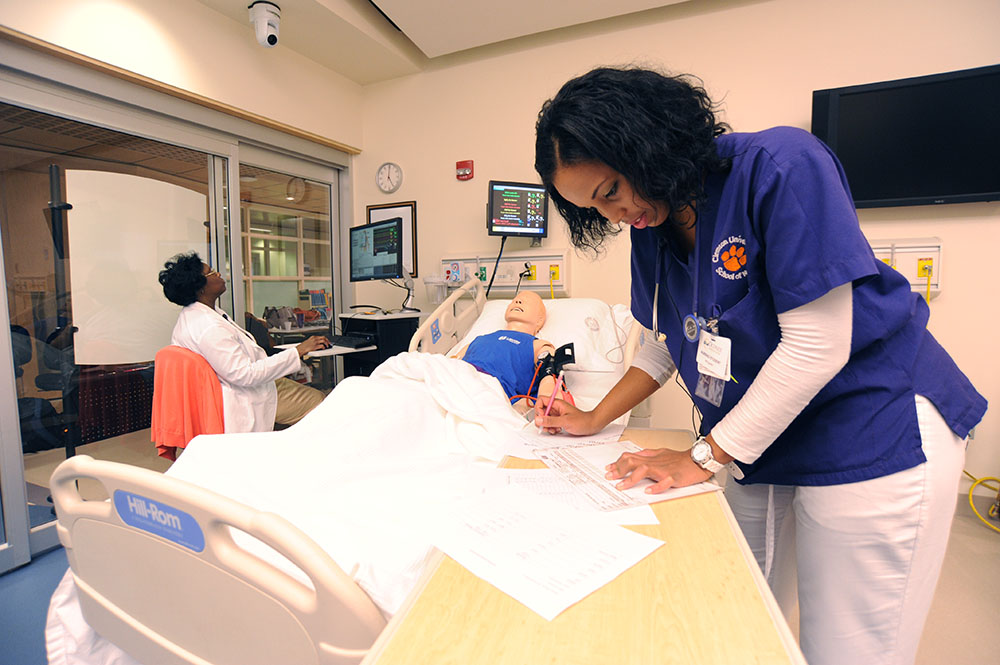The Clemson University School of Nursing, one of the most competitive academic programs on campus, is currently undergoing a plan to accommodate enrollment growth.
During the quarterly board of trustees meeting on Feb. 1 in Charleston, South Carolina, Provost Robert “Bob” Jones presented plans to grow Clemson University’s School of Nursing. In the fall of 2023, the program admitted 183 first-year students, and the program now predicts that this number could increase by 40% next fall if several goals are achieved, Jones said.
Jones added that the School of Nursing should better utilize existing simulation labs, increase clinical placements and hire seven new full-time faculty members. The financial plan for these goals will be ready in April 2024.
Currently, nursing students take introductory nursing courses during their first two years, then divide into cohorts according to clinical availability for their last two years, according to the Clemson Nursing Expansion Program.
To gain public health experience, nursing students are required to complete 900 hours of clinical rotations in settings such as medical centers, health departments, hospices and regional hospitals.
Hospitals around the Clemson and Greenville area see the number of hours needed as a “huge benefit” and that it “saves hospitals eight or nine months of training,” Jones said.
There is also a CU Nursing route that provides transportation to and from the Greenville locations, which is found on the Parking and Transportation Services website.
“Clemson is also collaborating with Tri-County Technical College and AnMed Health, Cannon Memorial Hospital, Prisma Health Oconee Memorial Hospital, and Prisma Health Baptist Easley Hospital to develop a working solution to the nursing shortage,” the Clemson Nursing Expansion Program description claims.
Nursing students employ the Clemson School of Nursing Clinical Learning Research Center, located in Edwards Hall, which mimics a hospital and utilizes high-tech equipment, IV insertions and human patient simulators.
“The CLRC is designed to help students think critically, communicate effectively, collaborate, and develop nursing skills through deliberate practice and evidence-based simulations,” wrote Kimberly Hill, the associate director of simulation at the CLRC, in a letter on Clemson’s School of Nursing webpage.
During the meeting, Jones also described the importance of the Clemson Nursing Expansion program because of the need for nurses in the upstate and South Carolina.










